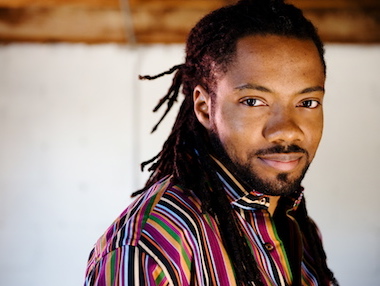Tag: PRX
This American Life opts for self-distribution, with PRX as pipeline to stations
The producers of public radio’s This American Life will take over distribution of their show starting July 1, using Public Radio Exchange to deliver ...Friday roundup: Barzyk unveils pet project; Senate drops patent-reform bill
Plus: Sesame Street and the Great Society, and PRX looks at the technical side of distributing WFMT shows.Chicago’s WFMT to leave Public Radio Satellite System for PRX
The Chicago network cited rising costs of satellite carriage and a desire to expand internationally as reasons for the move.PBS, PRX pick up Webby awards
Idea Channel, PRX Remix and Religion & Ethics Newsweekly are among the winners.Radiotopia looks to make business of creative online audio
Radiotopia, which launched Tuesday, is a collection of shows designed to help connect content producers with a broader digital audience.New partnership fuels Al Letson’s collaborative work on State of the Re:Union
Letson, the performance artist and playwright behind SOTRU, begins 2014 with a new production partner, renewed funding and ambitions to take his show ...Ken Rudin offers public radio a new weekly dose of “Political Junkie”
The demise of NPR’s Talk of the Nation ended Ken Rudin’s regular appearances on many public radio stations, but the “Political Junkie” is aiming ...Creative arts well-represented in Matter’s second startup class
The San Francisco–based startup accelerator, funded by KQED and the Knight Foundation and owned in part by Public Radio Exchange, has announced ...PRX teams with Center for Investigative Reporting on Reveal series
Public Radio Exchange is adding a new weekly show to its development slate — Reveal, a joint production with the Center for Investigative ...Frontline teams with PRX to develop iPad app
WGBH's long-running documentary program is partnering with the Public Radio Exchange to develop a free app for iPad users.Pubcasters capture 21 national Edward R. Murrow Awards
WLRN in Miami won large-market radio Murrows for feature reporting and use of sound. Chicago’s WBEZ also won for news documentary and ...PRX Remix app comes to mobile devices
Public Radio Exchange is porting its popular PRX Remix program stream to yet another platform as an app for iPhones and Android ...Pubradio contenders dominate radio division of Sigma Delta Chi Awards
Public radio reporters took all nine awards for radio reporting in this year’s Sigma Delta Chi Awards, which recognize outstanding reporting on ...Looking to get in listeners’ pockets
A growing number of public radio stations can now be found on mobile devices, their signature icons wedged between Angry Birds and ...Latitude News meets Kickstarter goal to fund new weekly podcast
Latitude News, an online news outlet exploring world events and their reverberating effects in local U.S. communities and vice versa, surpassed the ...






